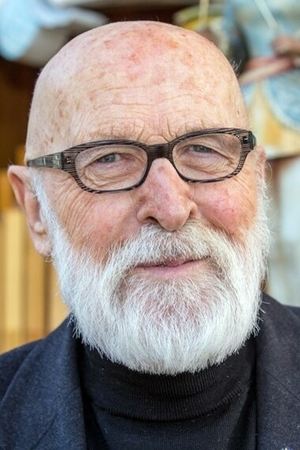Pierre Kartner (1935-2022)
Birthplace:
Elst, Gelderland, Netherlands
Born:
April 11, 1935
Died:
November 8, 2022
Petrus Antonius Laurentius Kartner (11 April 1935 – 8 November 2022) was a Dutch musician, singer-songwriter and record producer who performed under the stage name Vader Abraham (Father Abraham). He wrote around 1600 songs. Kartner was born on 11 April 1935. He started his singing career at the age of eight, by winning a local festival. He lived with his family in Amsterdam and worked in a chocolate factory. Kartner worked as a promoter and producer at record label Dureco with Annie de Reuver, with whom he formed Duo X. He was a member of the band Corry & de Rekels, which sold over one million records in the 1960s. Kartner wrote the music for the opening and closing credits on the Japanese cartoon adaption of the 1990 TV series Moomin and "Ik ben verliefd (Shalalie)", the Dutch entry for the 2010 Eurovision Song Contest. In 1971, Kartner created his well-known alter ego, Father Abraham, after writing a Dutch carnival song, "Father Abraham had seven sons". Initially he wore a fake beard, but subsequently grew a real beard which, along with a bowler hat, became his trademark. Also in 1971, his duet with Wilma Landkroon, "Zou het erg zijn, lieve opa" (Would it be bad, dear grandfather?), reached number one in the Dutch pop music charts. In 1981 Kartner recorded a song about Weepuls, "Wij zijn de wuppies" (We are the Weepuls). In 1975, Kartner scored his second biggest hit, "Het kleine café aan de haven" (The little café by the harbour). This song has since been covered over 250 times in various languages. English cover versions include "The Little Cafe by the Harbour" by Engelbert Humperdinck, "My Favourite Cafe on the Harbour" by Audrey Landers and "The Red Rose Café" by Demis Roussos and, separately, The Fureys. In French the song was recorded as "Le café de la Rue d'Amérique" by Mireille Mathieu and "Le café des trois Colombes" by Joe Dassin, and in German as "Die kleine Kneipe" by Peter Alexander. In Dutch it was rerecorded by André Rieu conducting the Maastricht Salon Orchestra. In May 1977, Kartner was asked to make a promotional song about The Smurfs. The record company initially only pressed 1,000 copies of the single, called "The Smurf Song", since they were unsure about the single's potential. However, they were all sold within one day at a Schlager festival. After a repress, 400,000 singles were quickly sold. A full Smurfs album was then created, which sold 500,000 copies. The album was released in several dozen countries, including France, Germany, Italy, Japan, Spain, and Sweden, and in various different languages. The album scored a number one hit in 16 countries. Subsequently, Kartner released other Smurf-themed albums, again in various countries and languages, such as Ga je mee naar Smurfenland (Dutch) and Vater Abraham im Land der Schlümpfe (German). In all, Kartner's Smurf works have sold around 17 million copies. In 2005 Vader Abraham recorded The Smurf Song together with the dance act Dynamite. ... Source: Article "Vader Abraham" from Wikipedia in English, licensed under CC-BY-SA 3.0.





